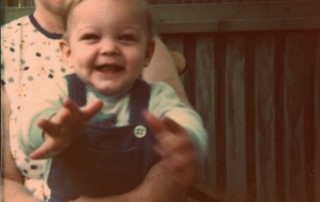Many times over the years, I have heard clients tell me, “While I was driving here, I thought, ‘what am I going to talk about?’” Often, we are able to find something to focus on but I wonder how useful these appointments are. Sometimes we end up discussing issues that we have covered previously and there is a feeling of dragging out the appointment just to fill the time. This is difficult for both of us. With that in mind, I thought I would offer some suggestions as to how to get the most out of your appointment and counselling in general. 1. Schedule It at the Right Time Counselling appointments are not your average conversation. As such, it might not be a good idea to try to fit a session in over lunchtime. It is generally a good idea to try to avoid, if possible, scheduling other activities immediately following the appointment. Even if someone is slightly late for their appointment, my preference is for them to sit in the waiting room for a few minutes to gather themselves and their thoughts together before beginning. When we are feeling rushed, stress hormones interfere with our learning, on a […]
Playing Dead Emotionally: How Numbing Your Pain Can Be a Curse (and a Blessing)
Fight, Flight and … Freeze? Most people have heard of the “fight or flight” response. It is the body’s naturally hard-wired way of dealing with threats to one’s safety. I have written about it before, a few times, so I won’t go into it again but today I’m going to mention the third part of this response: freeze. In nature, animals typically go to flight first, since they are free of ego and have nothing to prove, only to enhance their own chances of survival. If they can’t go to flight and escape danger, they will go to fight, posturing and growling in hopes of scaring off the threat. If this fails, they will actually engage in aggressive behavior, albeit defensive aggression. Once these two options are unsuccessful, or if they are unavailable, most species have a form of reflexive behavior that could be termed “playing dead”. Playing Dead Emotionally Since most of the threats people face in our neck of the woods are social or emotional (although many do face actual physical threats in many forms), the freeze response may look a bit different than it does for a possum or cat. In our case, we tend to play […]
Middle Adulthood: The Lost Child
What About Middle Age? It seems that most research and attention is spent on issues facing children, youth, and the elderly, with middle adulthood bringing up the rear. I believe this has given rise to a generation that feels displaced. If we use the analogy of a dysfunctional family and its varied roles, it would seem that middle aged adults fit well the mold of the lost child, the one who receives the least amount of attention, creates the least amount of trouble, but is also the least connected to the rest of the family. I believe that it is helpful to visualize those who face identity struggles, loneliness, existential angst, and learned helplessness during their middle adulthood years as lost children, robbed of their once-special status of being the new addition to the family but not quite mature enough to take on the role of the respected and revered older sibling. The dramatic language used to describe this phase of life, as demonstrated above, gives rise to the perception that crisis is a necessary part of mid-life. The word crisis, however, denotes a scenario that is infused with panic, pressure, and danger. Is this really the state of the […]
My approach in a nutshell
A short description of one of the most basic elements of my counselling approach: Educational Relational Behavior Therapy (ERBT) is built around two pillars: psychoeducation and the principles of rational emotive behavior therapy. However, contrary to the concept of irrational beliefs being the main culprit, the individual is not taught to recognize his or her thoughts or beliefs as illogical or irrational, but inaccurate. For example, if an individual believed in their core that the next rainfall would result in a catastrophic flood, the most logical response to the next rainfall would be to get to higher ground as quickly as possible. This would be the best way to avoid getting washed away in the flood. To others, the behavior appears illogical because they do not share the belief of the flood. However, no matter how logical and rational the behavioral response, the fact remains that the premise upon which the logic is based is, in fact, inaccurate. Thus we can say that the response is logical but inaccurate. This may apply to the origins of individuals’ anger, aggression, anxiety, depression, etc. If the individual’s implicit memory of past harms has been triggered by a current situation, then the brain […]
ADHD Journal Entry
A little ADHD journal entry I found on my computer: I wonder if all of the birds in this neighbourhood know each other. Is it always the same ones screaming their lungs out just beyond my bedroom window at sunrise? I don’t think birds even live in families but if not, do they at least hang out and have best friends or birds that are cool? What would a cool robin look like? I have a really hard time picturing a cool robin. They seem kind of prim and proper and boring. We’ve got these blue jays that live in the trees in our backyard but they are just a bit too screechy to be considered cool. I think blue jays are like bird hipsters. They dress outlandishly but try to play it off like it’s no big deal. Well it is a big deal. I think the ultimate cool must be a hawk. Don’t make much noise but everybody knows when they’re around. Crows are like the kids who want all the other birds to think they run the show. They make a bunch of noise, bully the other birds, and even look pretty sweet, all in black, shiny […]












Recent Comments